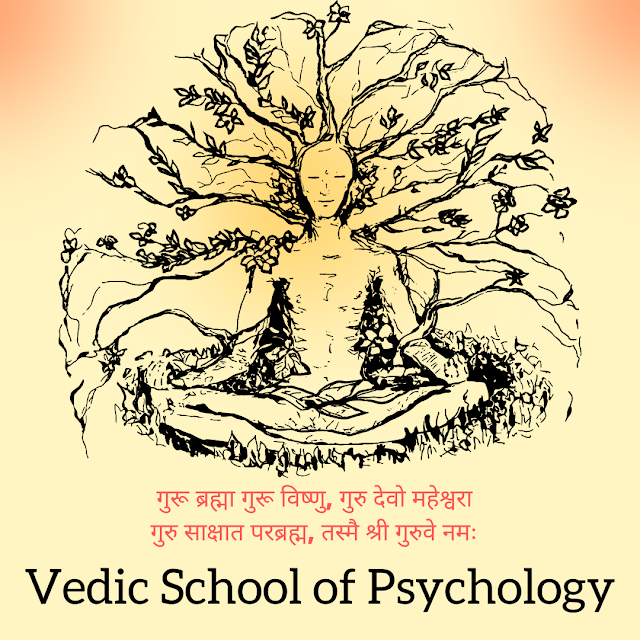Vedic School of Psychology
The Vedic School of Psychology, deeply rooted in the ancient
Indian Vedas, offers a distinctive approach to understanding the human mind and
behaviour. This approach is characterised by several key features that
differentiate it from Western psychological paradigms:
- Holistic
View of the Individual: Vedic psychology views individuals as an
integration of body, mind, and spirit. It emphasises that mental and
physical health are interconnected and that spiritual well-being is
crucial for overall health.
- Atman
(True Self) as Central: The concept of Atman, or the true self/soul,
is central. This school believes that understanding and realizing one's
Atman is key to psychological well-being. It differs from Western
psychology, which often focuses more on the ego or conscious personality.
- Maya
(Illusion) and Perception: Vedic psychology introduces the concept of
Maya, suggesting that the material world and our perceptions of it are
illusory. This perspective helps in understanding the source of suffering
and the importance of transcending material attachments.
- Karma
(Action and Consequence): It emphasizes the role of Karma, the law of
cause and effect, in shaping an individual's experiences and mental
states. This belief underscores the importance of actions and their moral
and psychological consequences.
- Dharma
(Righteous Living): Living according to one’s dharma or duty is seen
as essential for mental peace and stability. This involves fulfilling
one's roles and responsibilities in life in a morally upright manner.
- Meditation
and Yoga as Tools: These practices are integral to Vedic psychology, and
used not just for physical well-being but also for mental and spiritual
health. They are seen as a means to calm the mind, achieve inner peace,
and realize the deeper aspects of the self.
- Reincarnation
and the Eternal Journey: The belief in reincarnation — that the soul
undergoes multiple births and deaths — shapes the understanding of the
human psyche, suggesting that past life experiences may influence present
mental tendencies and patterns.
- Interconnectedness
with the Universe: This perspective holds that the individual self is
connected with the universal consciousness. This interconnectedness is key
to understanding one's place in the world and the nature of the self.
- Emphasis
on Spiritual Development: Unlike many Western psychological approaches
that may focus on the individual’s adaptation to societal norms or
personal achievements, Vedic psychology places a strong emphasis on
spiritual growth and realization.
- Mind-Body
Techniques for Healing: It utilizes various mind-body techniques such
as pranayama (breath control), dietary guidelines, and herbal remedies,
recognizing their impact on mental health.
- Customized
Approach to Well-being: Vedic psychology often adopts a personalized
approach, taking into account the individual's unique physical
constitution, mental disposition, and spiritual stage.
- Integration
of Philosophy and Psychology: It seamlessly blends philosophical
concepts with psychological practices, offering a comprehensive framework
for understanding human behaviour and mental processes.
These characteristics collectively present a comprehensive
and spiritually inclined framework for understanding human psychology,
significantly different from more materialistically focused Western paradigms.



Comments
Post a Comment